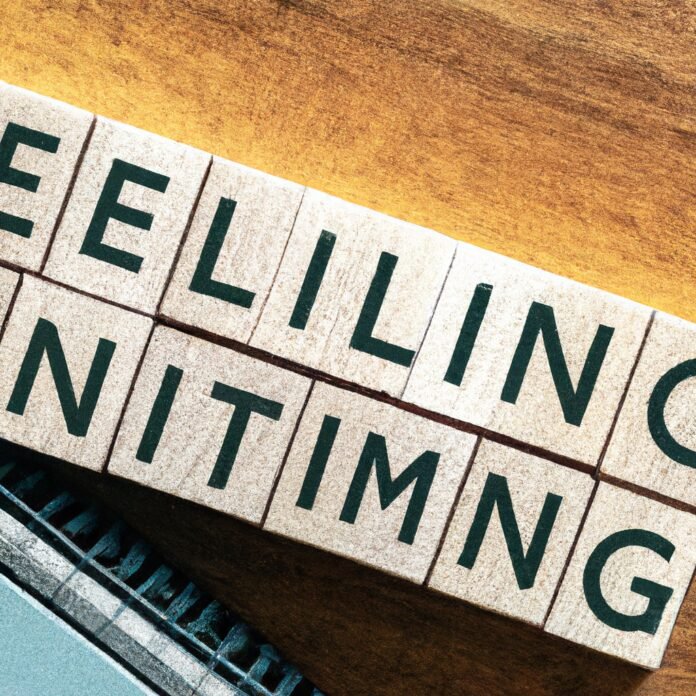It is no secret that life is full of trials and tribulations – but what often gets forgotten is that emotional resilience is an essential building block to improving and strengthening mental health. Everyone at some point will experience difficulty in their lives, and it is important to be able to recognize and nurture our emotional resilience – the ability to effectively cope with and manage the ups and downs of life. This article explores the importance of emotional resilience, and looks at ways to nurture and strengthen it.
1. Cultivating Self-Awareness for Emotional Resilience
Understand Your Emotions
Self-awareness can be challenging to cultivate, but it is essential for developing emotional resilience. To start the process, it is important to understand the relationship between your thoughts, behaviors, and feelings. Start by taking some time to make an emotional inventory and recognize where you tell yourself stories that can contribute to unwanted emotions. Acknowledge these stories and take back any control that they may have had over your emotional life.
Develop Emotional Intelligence
When it comes to developing emotional resilience, it’s important to understand the difference between rational thoughts and emotional reactions. We can use emotional intelligence to help us decide how to respond to emotional experiences. This type of self-awareness helps us to understand our emotional responses—and those of others—so that we can better navigate difficult situations.
To do this, first recognize when you are feeling an emotional reaction. The list below provides a few questions you can ask yourself:
- Am I feeling an emotion, such as anger or joy?
- Where am I feeling it in my body?
- Where is the emotion coming from?
- What am I telling myself about myself in this moment?
Once you’ve identified the emotion, ask yourself how you can use it to constructively deal with any situation that may arise. Evaluating the circumstances and developing a plan of action that allows you to better manage the emotional triggers is essential for cultivating emotional resilience.
2. Developing Practical Coping Strategies
When facing times of stress, it can be difficult to keep your emotions in check. But having the right strategies for coping can make a world of difference. Here are some effective tips you can use to stay emotionally regulated, and get through tough times like a pro.
- Take time for self-care: Don’t underestimate the importance of taking care of yourself. Take time each day for some activities that help you relax, like doing yoga, reading a book, or listening to relaxing music. You’ll be amazed at the difference a few minutes of self-care can make.
- Try mindfulness: Practicing mindfulness can be an effective way to stay emotionally regulated. By noticing and labeling your emotions, you’ll be in a better position to take action to modify and manage them. Plus, you’ll be better equipped to put things in perspective.
- Reach out: No man is an island, and being a lone ranger while dealing with challenging emotions isn’t a good idea. Reach out to a trusted friend or family member who can provide emotional support. You’ll be surprised at how invaluable it can be.
- Focus on the positive: Spend time everyday to focus on the good things in your life. Whether it’s the people around you, the things you can be thankful for, or simple pleasures like a walk in nature, keeping a positive attitude can be an effective way of staying emotionally regulated.
Ultimately, developing effective coping strategies takes practice. Give the tips mentioned above a try and find what works for you. With patience and commitment, you’ll find soon find yourself coping better with difficult emotions and challenging situations.
3. Learning to Burn Brightly in Difficult Times
The glow of a candle is a powerful reminder of determination and resilience. In difficult times, burning brightly often becomes a symbol of strength, courage, and hope. But how can we learn to truly shine, no matter the situation?
- Prioritize Your Self-Care: When life is tough, be sure to maintain a healthy balance of rest, nourishment, and personal care. Adapt to the challenges you face, and don’t be afraid to put yourself first.
- Find your Fuel: Whether it’s meditation, exercise, or a creative outlet, find your own way of staying motivated. Focus on the positive, and look for moments of joy.
- Give Yourself Grace: Take time to be gentle and forgiving. Life presents its ups and downs, and we must learn to accept our vulnerabilities as part of the journey.
Building balance and resilience during difficult times can be a challenge. Remind yourself of who you are and what you can do. Use your inner strength to preserve the flame within, and you can be sure to burn brightly no matter what comes your way.
4. Finding Ways to Connect Inwardly and Outwardly
The most rewarding aspect of life is cultivating meaningful connections both inwardly and outwardly. Here are some tips to do so:
- Create a morning ritual or practice like yoga or journaling to bring yourself a sense of peace and clarity.
- Take the time to embrace any connections you do have in your life and work on maintaining them.
- Find ways to be vulnerable around the people in your life and talk about your passions and hopes.
- Seek out other people in activities and events that spark your interest – it could be a painting class or a meetup.
It’s important to remember that these relationships take time and energy. Try to be patient and don’t cut yourself off if things don’t initially flow your way. Connecting deeply with yourself and others is no simple task, but when done so, can make life infinitely richer.
In saying this, the power of serenity and solitude should not be understated. Sometimes, it is most beneficial to be still and appreciate the world in that moment. Working towards being comfortable with solitude does not mean you don’t enjoy your connections, but that you can exist healthily without them if you need to.
5. Creating the Best Possible Version of Yourself
Everyone has the ability to improve themselves. It is all about having the courage to take the steps needed to become a better version of yourself. Here are five ways to create the best possible version of yourself.
- Live Healthfully: Take the time to eat healthy foods, exercise, and take care of your mind and body. This ensures that you are in peak physical and mental condition.
- Set Goals:Create short and long-term goals that not only challenge you, but also aid in your self-improvement. Short-term goals can help keep you motivated, while long-term goals help you visualize where you see yourself in the future.
- Prioritize Self-Care: Regularly take time to relax, reduce stress, and keep your emotional and mental health in check. Self-care activities can be anything from taking a day off to take care of yourself, or even reading a book in the comfort of your own home.
- Explore New Opportunities: Find new hobbies and activities that interest you. Learning something new is a great way to gain new experiences, discover hidden talents, and gain a greater appreciation of the world and the people around you.
- Surround Yourself with Supportive People:Surrounding yourself with individuals who support and motivate you helps to ensure that you continue to strive for greatness. Your friends, family, and colleagues should be a positive influence. Learn from them and build a strong, supportive network.
At the end of the day, is all about taking control of who you are and where you want to be. When you take the time to work on yourself, you will be able to achieve unimaginable success.
By understanding the characteristics of emotional resilience and practicing the tips we’ve listed, you’re on your way to leading a healthier and happier life. Investing in yourself can be a revolutionary act, and the first sign of success will be a newfound sense of personal emotional strength. Embrace your emotional resiliency and live a life of mental freedom and fulfillment.


